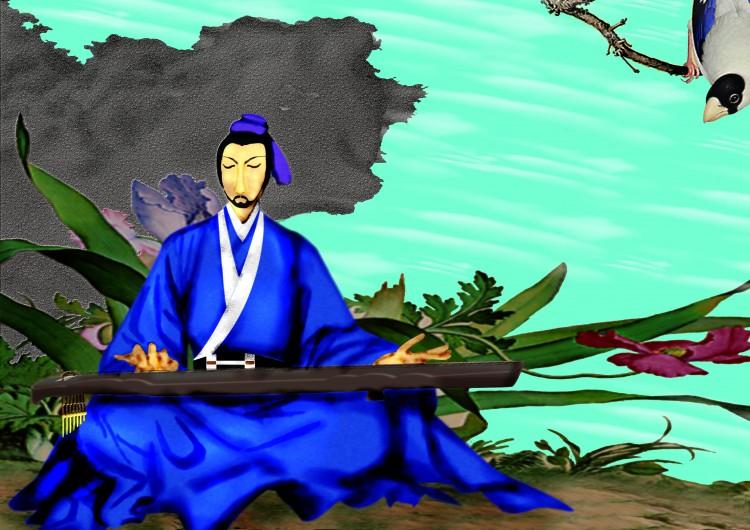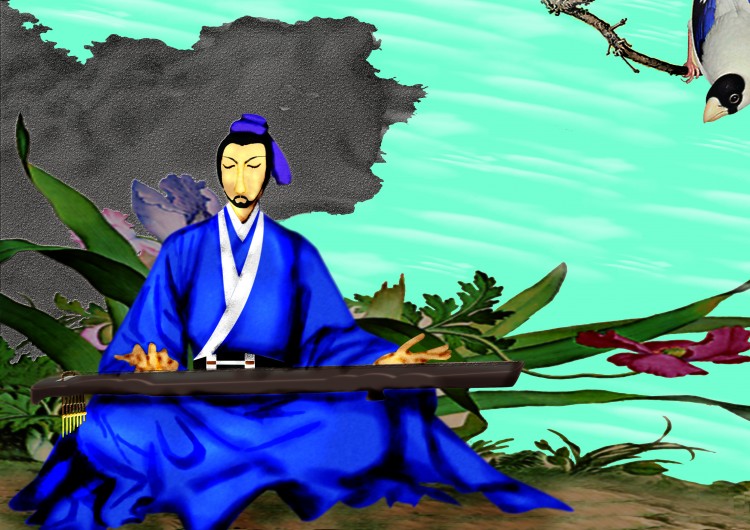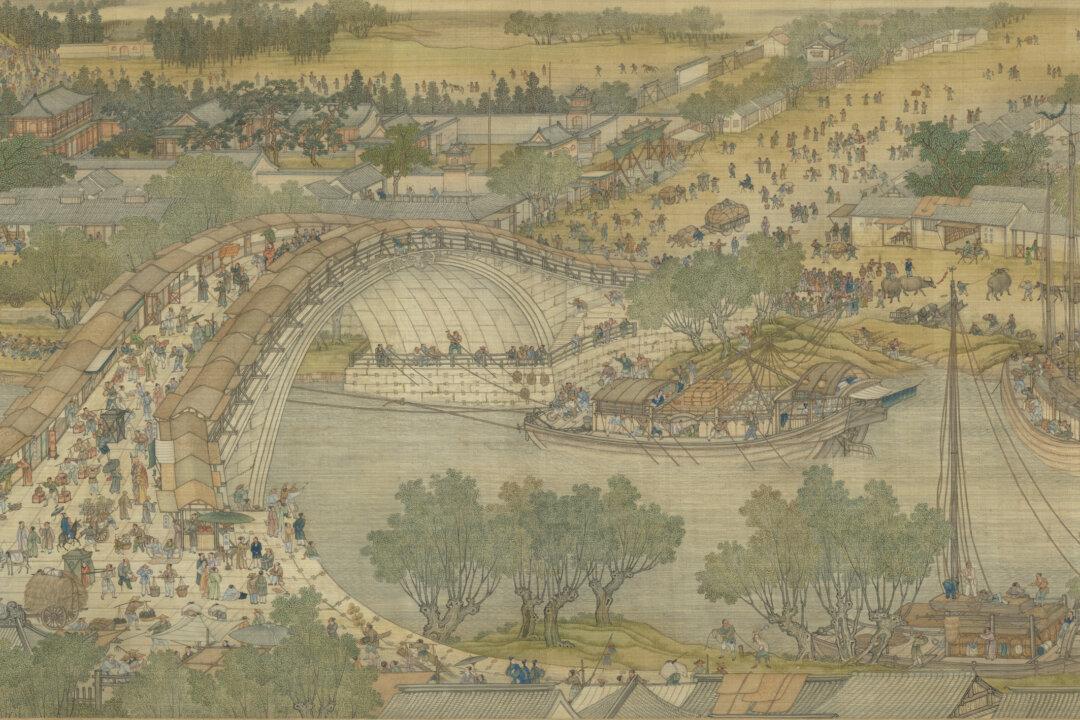Shi Kuang, 師曠, (572–532 B.C.) was a blind music master in the Jin Kingdom during the Spring and Autumn Period (770–476 B.C.). He was exceptional at playing the zheng (also known as gu zheng), a seven-string, Chinese musical instrument of the zither family.
It was said that his virtuoso performances could make eating horses stop to listen to the music, and birds swoop down with food dropping from their beaks. Also, it was said that he could prophesy good or bad fortune by listening to a piece of music.
Shi Kuang believed that music could influence the rise or fall of a state. Good music, in his opinion, was attuned to the natural rules of the universe, from which a king and his people could be encouraged to live with morality and etiquette.
People should cultivate their “de” (virtue) to align with holy music. Peace and happiness would then abide in the state when a good code of conduct was followed, while dark and decadent music would drive a state to fall.
The king of Jin once insisted that Shi Kuang play some holy songs for him, even after he was warned that such music was only for a king with great virtue. When Shi Kuang reluctantly played the first song, it attracted beautiful cranes, a pleasant omen then, which flew into the court and danced to the tune.
This amazed everyone, so the king commanded him to perform a loftier song despite Shi Kuang’s protests. As soon as the song started, dark clouds gathered and a heavy storm suddenly ripped off the roof tiles.
The king fled away in panic. The weather became clear after Shi Kuang stopped playing the song. From then on, people admired him more and showed greater respect to the noble music.
In addition to his musical talent, Shi Kuang gave the king wise and brave advice concerning many policies, and his insight into music was also reflected in his extraordinary political views.
When the king expressed sympathy for his blindness, Shi Kuang answered that there were five types of blindness much worse than his suffering.
It was said that when a king was blind to injustice, blind to his officials’ incompetence, blind to the righteous, blindly engaged in war, and was blind to his subjects’ well-being, his state would be doomed to fall and his people would suffer more. Touched by Shi Kuang’s words, the king decided to be more diligent in state affairs and rule with virtue.
However, later when the king became old, he started to again enjoy a lavish lifestyle while turning a blind eye to his people’s suffering and a deaf ear to good advice. Shi Kuang decided not to play for him any longer. Shi Kuang killed himself with his musical instrument in front of the king in the hope of awakening the king’s conscience—but to no avail. The state went into decline and eventually collapsed.
Although he was blind, Shi Kuang’s achievements in music and his clear political vision were believed to be closely linked to his cultivation of “exploring the connection between the universe and humans, understanding the changes in the past and at present.”
According to legend, Shi Kuang became the deity in charge of music and the patron of blind fortune-tellers.
The Epoch Times publishes in 35 countries and in 21 languages. Subscribe to our e-newsletter.





